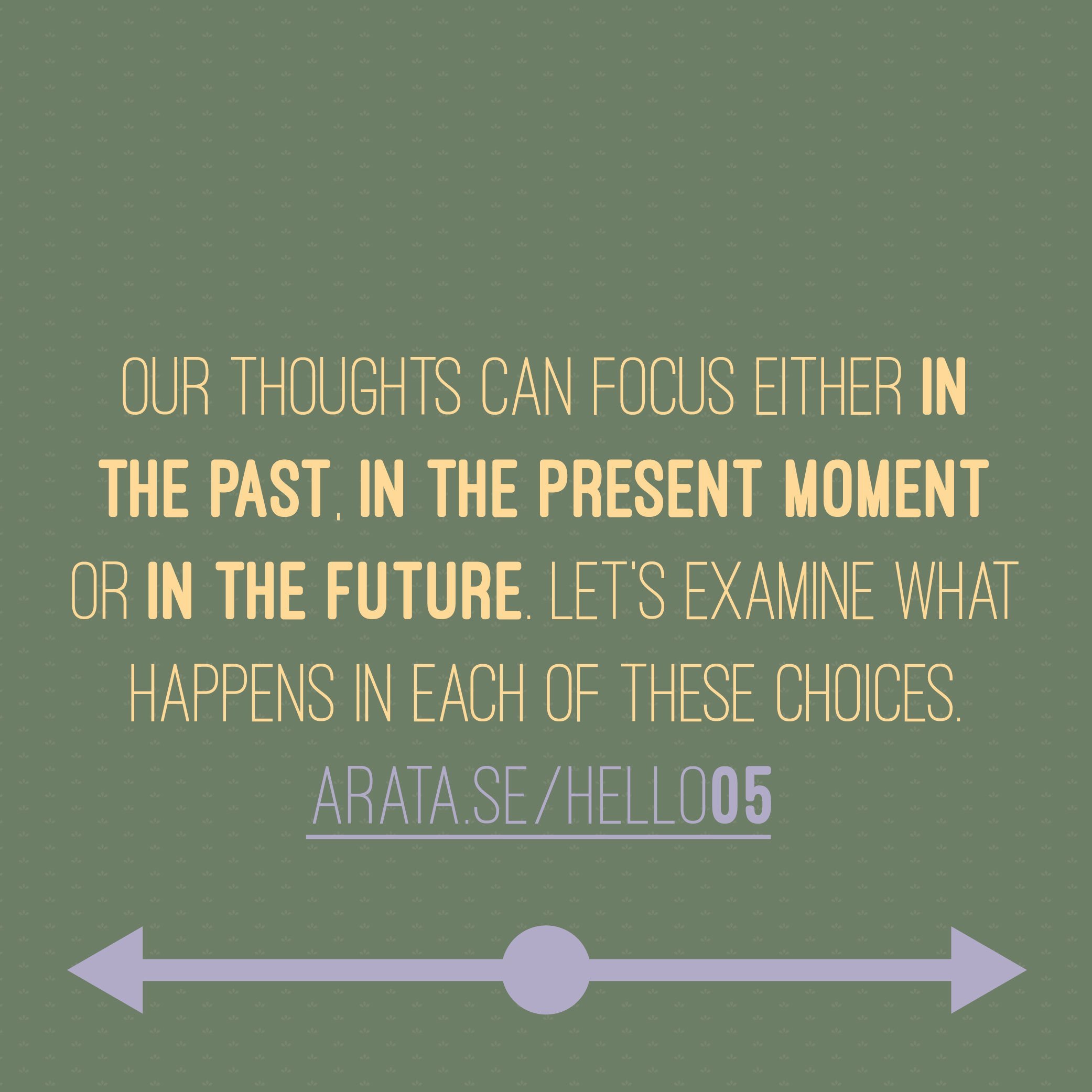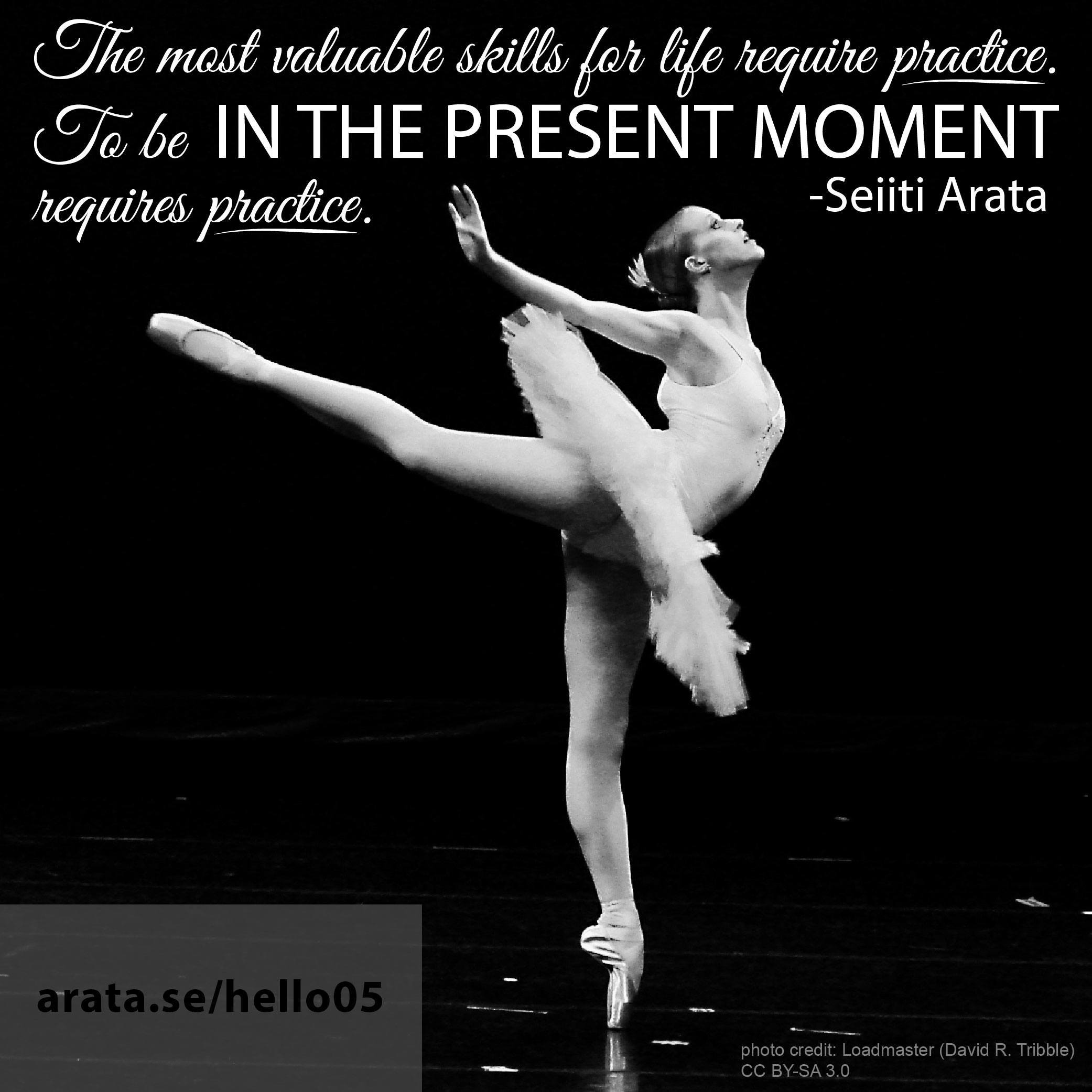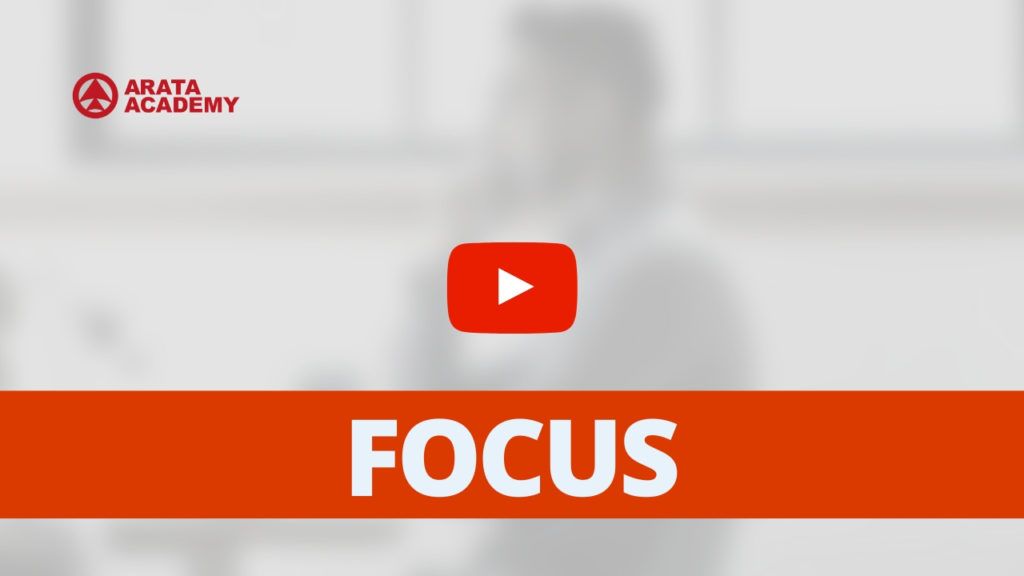Hello! Seiiti Arata. Be in the moment. When it comes to our thoughts, we can either focus on the past, be in the moment or focus on the future. Let’s examine each of these choices and their implications. We often hear the advice to be in the moment, but what does it mean?
YouTube video – Be in the moment | Hello Seiiti Arata 05
1. Stuck in the past
It’s easy to get angry about things that happened to us in the past. We might get annoyed about something from just a few moments ago… or even a few years back.
We’re capable of turning our most embarrassing moments into crystal clear mental movies, and we can relive past injustices over and over again. But we can also spend hours running over the good times we’ve lived through. Who hasn’t?
There is a problem with lying in bed with a thousand and one worries: it’s such a waste of energy.
You might think that you’re being productive when you’re in the car driving to work wondering ‘should I do this or should I do that?’, because you’re thinking over something important.
In fact, if you could write down all of those thoughts you might well realise that the same repetitive ideas, the same trivial and unfounded fears, are going around and around your head in circles. They are illusions, mind games we play with ourselves.

2. Anxiety over the future
When we forget to be in the moment, we often worry about things that might happen in the future, or those that might not. We spend hours thinking about the things we have to do, making ourselves anxious.
At the same time, we also daydream about the future, and what it might hold in store. We act out our own wishful thinking in our minds, conjuring up a world where all our hopes come true.
3. Be in the moment
There is an alternative: to focus on the present moment. Being present improves our performance and increases our awareness.
When we focus on the present we don’t judge – we just feel, we listen, we see things as they are. No extra layers of interpretation. We’re not classifying, and we’re not labelling.
4. Taking things as they are, no labels
Remember the episode on labels? Labels are shortcuts we use to cut down on cognitive processes by using minimal amounts of information to make quick decisions.
How do we do this? By relying on past experience.
We search through our preconception database and start labelling people with them. We judge compulsively; in the first few seconds of seeing someone new – and then we pick out a label from our catalogue. He’s one of them. She’s one of those.
These labels dehumanise people – we can’t see through them; all we see is a stereotype. John’s a farmer. Pete’s shy. Lucy’s a feminist. This taxi driver is reckless. That salesman is manipulative. Julia’s a good wife.
We attach a set of expectations to each of these labels. There are things they should do. There are things they shouldn’t. And without even asking, without even being there in the present moment, perceiving what’s alive in them, we assume we know what they do, what they think, and who they are.
This is one more reason to be in the moment. We can take things as they are, experiencing life as it is.
5. Understanding our needs
So what can you do about this? There are a lot of people out there looking for mindfulness techniques, looking for training on how to be present.
Does that mean it’s wrong to think about the past? Is it bad to plan for the future? Is it dangerous to categorise people?
It all depends on what we want. So, let’s ask ourselves: What are our needs? This is key to being in the moment.
For example, do we need to re-examine our past behaviour to help us develop and make better choices in the present? If so, focusing on the past may be helpful for a while. We did this together in the exercise on how people change.
You might realise that your thoughts and worries about the future are a source of anxiety. In this case, it may be useful to work out whether these thoughts are something you can act upon. If not, is there any point continuing to drive yourself up the wall? Is your body tense? If there’s nothing you can act on right now, then focussing on the future is of no use. Wouldn’t it be healthier to let it go and move on?
Would it be more rewarding to connect with this person in the present moment and see them as they really are? Or do you need to label them in order to make a quick decision? Wouldn’t life be more wonderful if you didn’t judge this person?
6. We need to practice
Over time, I have realised that the most valuable skills in life require practice. To be in the present moment requires practice.

It’s easy to drift into the past or into the future. And this simple question helps a lot: what are my needs? Once I know my needs, I can already see how to stop thinking and start living.
Here is one extra idea to help practice being in the present moment: Be aware of your thoughts. If you find yourself thinking too much, what sort of thoughts are you experiencing? Worry? Fear? Anger? Anxiety? What’s their purpose? What is the underlying need? Don’t blame yourself for thinking.
Just try to understand more about the nature of the thoughts. This will increase your awareness.
The capacity to be in the present moment is part of the personal development process. This is why it is one of the topics you will learn in the Personal Development course – click here to start.
